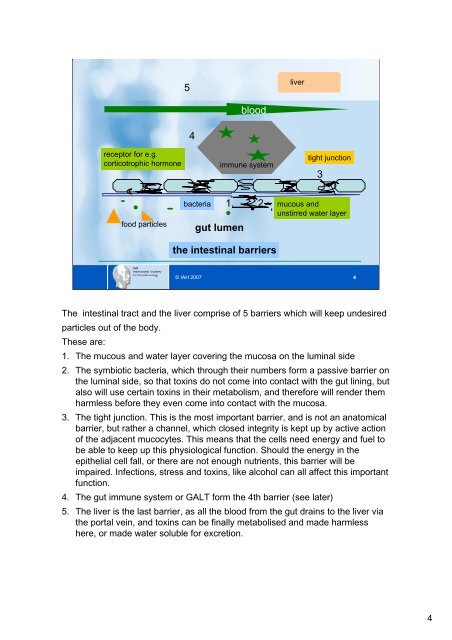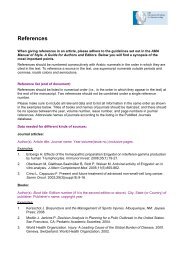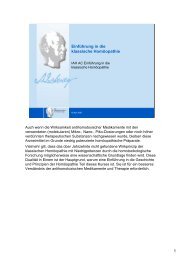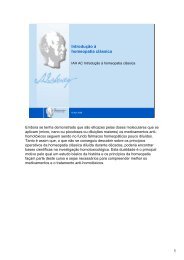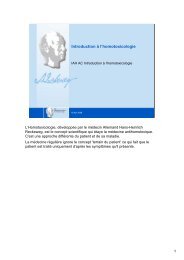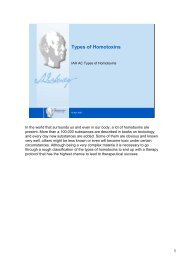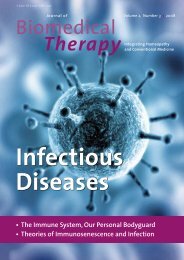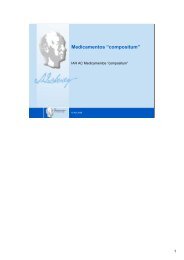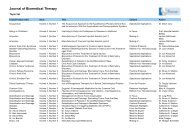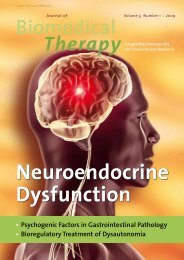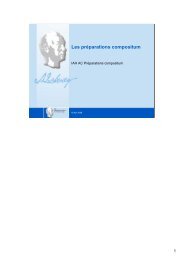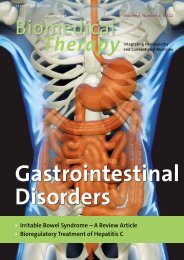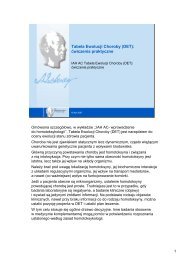IAH AC Gastrointestinal Disease
IAH AC Gastrointestinal Disease
IAH AC Gastrointestinal Disease
Create successful ePaper yourself
Turn your PDF publications into a flip-book with our unique Google optimized e-Paper software.
5<br />
liver<br />
blood<br />
4<br />
receptor for e.g.<br />
corticotrophic hormone<br />
immune system<br />
tight junction<br />
3<br />
food particles<br />
bacteria<br />
gut lumen<br />
1. 2<br />
mucous and<br />
unstirred water layer<br />
the intestinal barriers<br />
© <strong>IAH</strong> 2007<br />
4<br />
The intestinal tract and the liver comprise of 5 barriers which will keep undesired<br />
particles out of the body.<br />
These are:<br />
1. The mucous and water layer covering the mucosa on the luminal side<br />
2. The symbiotic bacteria, which through their numbers form a passive barrier on<br />
the luminal side, so that toxins do not come into contact with the gut lining, but<br />
also will use certain toxins in their metabolism, and therefore will render them<br />
harmless before they even come into contact with the mucosa.<br />
3. The tight junction. This is the most important barrier, and is not an anatomical<br />
barrier, but rather a channel, which closed integrity is kept up by active action<br />
of the adjacent mucocytes. This means that the cells need energy and fuel to<br />
be able to keep up this physiological function. Should the energy in the<br />
epithelial cell fall, or there are not enough nutrients, this barrier will be<br />
impaired. Infections, stress and toxins, like alcohol can all affect this important<br />
function.<br />
4. The gut immune system or GALT form the 4th barrier (see later)<br />
5. The liver is the last barrier, as all the blood from the gut drains to the liver via<br />
the portal vein, and toxins can be finally metabolised and made harmless<br />
here, or made water soluble for excretion.<br />
4


